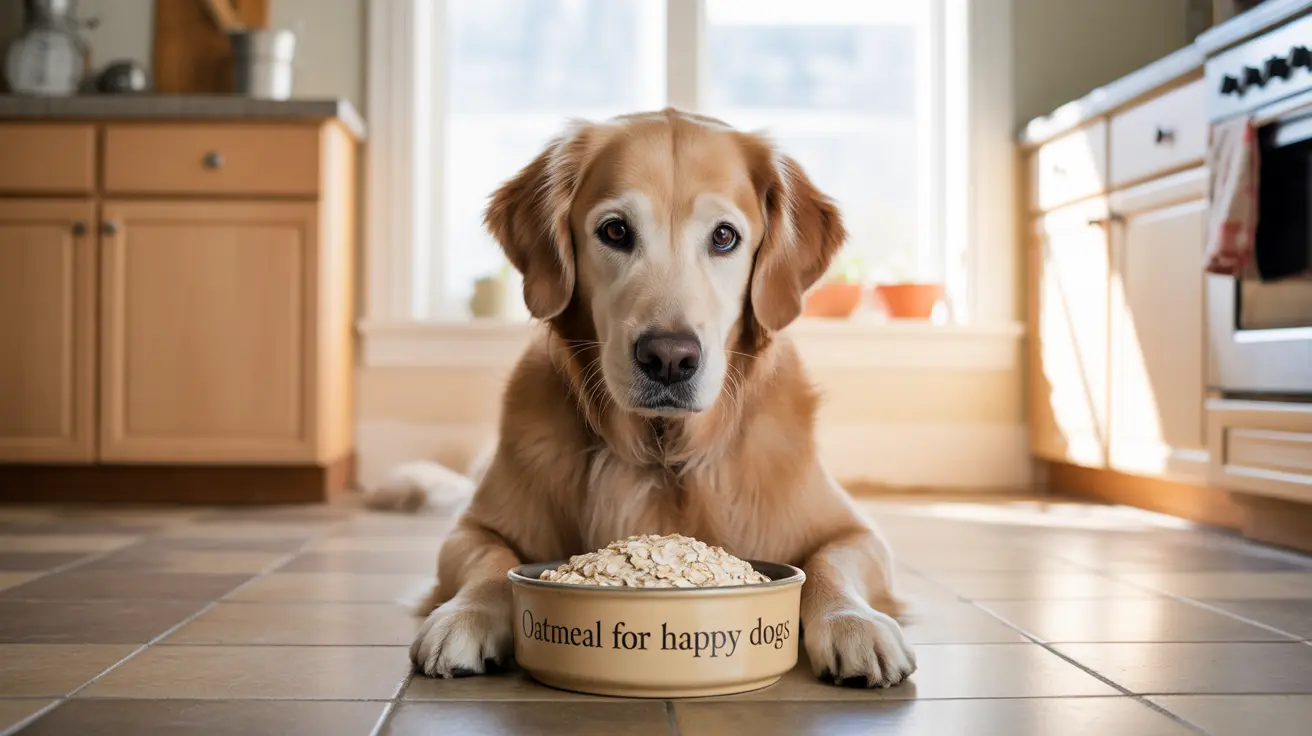If you're considering adding oatmeal to your dog's diet, you're not alone. Many pet owners wonder about sharing this nutritious breakfast staple with their furry friends. The good news is that oatmeal can be a healthy addition to your dog's diet when prepared and served properly.
Understanding how to safely incorporate oatmeal into your dog's nutrition routine is essential for maximizing benefits while avoiding potential problems. Let's explore everything you need to know about feeding oatmeal to your canine companion.
The Safety of Oatmeal for Dogs
Plain, cooked oatmeal is generally safe for dogs to eat in moderation. The key is choosing the right type and preparing it appropriately. Unflavored, whole grain oats are the best choice, while instant oatmeal packets often contain added sugars, artificial sweeteners, and other ingredients that could harm your dog.
Avoid flavored varieties, especially those containing raisins, chocolate, or artificial sweeteners like xylitol, as these ingredients can be toxic to dogs. Stick to plain, traditional oats cooked in water without any additives.
Nutritional Benefits for Your Dog
Oatmeal offers several valuable nutrients that can benefit your dog's health:
- Fiber for digestive health
- B vitamins for energy metabolism
- Iron for healthy blood cells
- Zinc for immune system support
- Omega-6 fatty acids for skin and coat health
- Protein for muscle maintenance
The high fiber content in oatmeal can be particularly beneficial for dogs with irregular bowel movements or those needing additional dietary fiber. However, these benefits should be balanced with proper portion control.
Proper Preparation Methods
To safely prepare oatmeal for your dog:
- Cook the oats thoroughly in plain water
- Allow the oatmeal to cool completely before serving
- Use a 1:2 ratio of oats to water
- Avoid adding salt, sugar, or any seasonings
- Never serve raw oats, as they're harder to digest
Cooking the oatmeal properly ensures better digestibility and helps your dog absorb the nutrients more effectively.
Serving Guidelines and Portions
Oatmeal should be treated as an occasional treat rather than a regular meal replacement. Follow these portion guidelines:
- Small dogs: 1-2 tablespoons per serving
- Medium dogs: 2-3 tablespoons per serving
- Large dogs: 3-4 tablespoons per serving
Limit oatmeal treats to once or twice per week, and always introduce new foods gradually to monitor your dog's reaction.
Potential Risks and Considerations
While oatmeal can be beneficial, there are some important considerations:
- Excess fiber can cause digestive upset
- Too much oatmeal can lead to weight gain
- Some dogs may have grain sensitivities
- Flavored varieties can contain harmful ingredients
- Serving too frequently may unbalance their regular diet
Frequently Asked Questions
Can dogs safely eat oatmeal, and what type of oatmeal is best for them?
Yes, dogs can safely eat plain, cooked oatmeal. Traditional whole grain oats cooked in water are best, avoiding instant varieties with added ingredients or flavors.
What are the nutritional benefits of feeding oatmeal to dogs?
Oatmeal provides fiber, B vitamins, iron, zinc, and omega-6 fatty acids. These nutrients support digestive health, energy levels, immune function, and coat condition.
How should oatmeal be prepared to avoid health risks for dogs?
Cook plain oats in water using a 1:2 ratio, allow to cool completely, and serve without any additives, seasonings, or sweeteners. Never serve raw oats.
How much oatmeal can I give my dog, and how often is it safe to feed?
Serve 1-4 tablespoons depending on your dog's size, limiting treats to once or twice weekly. Always start with small amounts to test tolerance.
What potential side effects or problems can dogs have from eating oatmeal?
Possible issues include digestive upset from excess fiber, weight gain from overfeeding, and allergic reactions in grain-sensitive dogs. Some dogs may also experience bloating or gas if portions are too large.
Remember to always consult with your veterinarian before making significant changes to your dog's diet, especially if your pet has existing health conditions or dietary restrictions.




